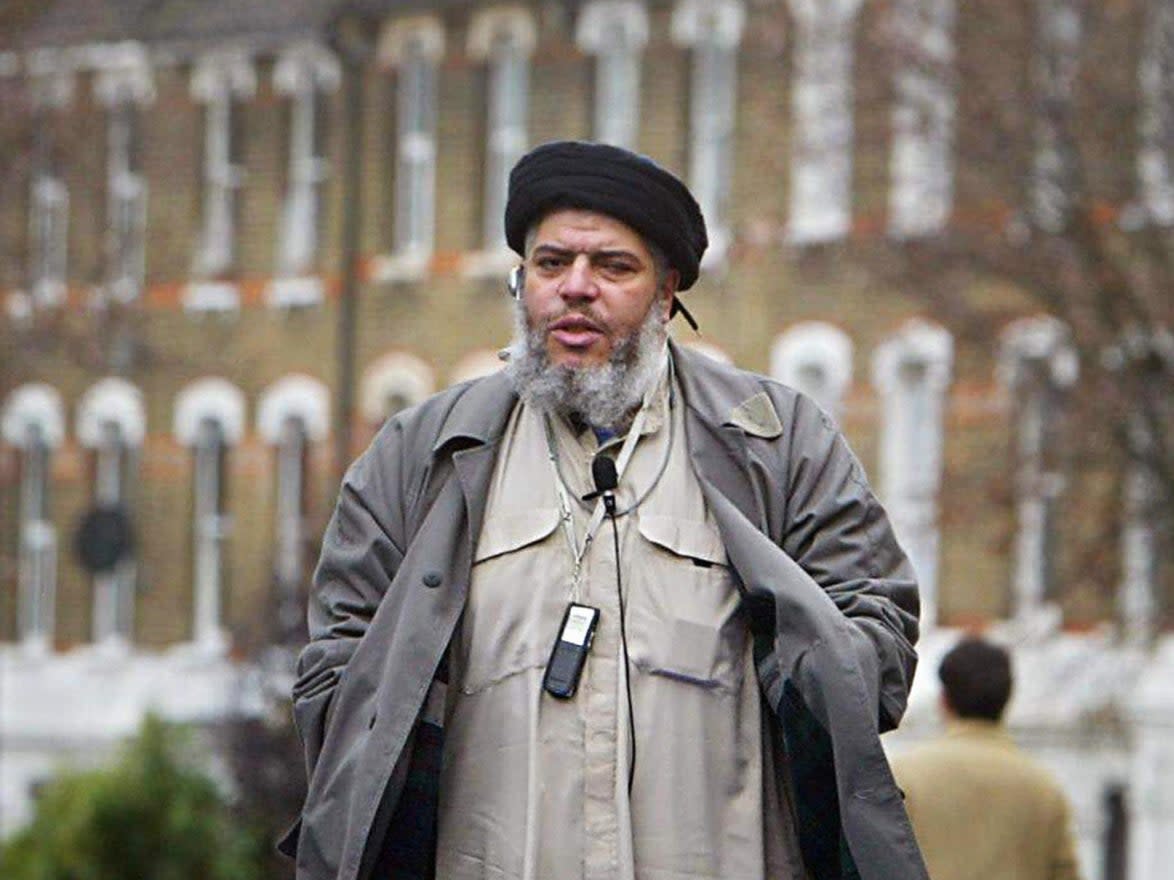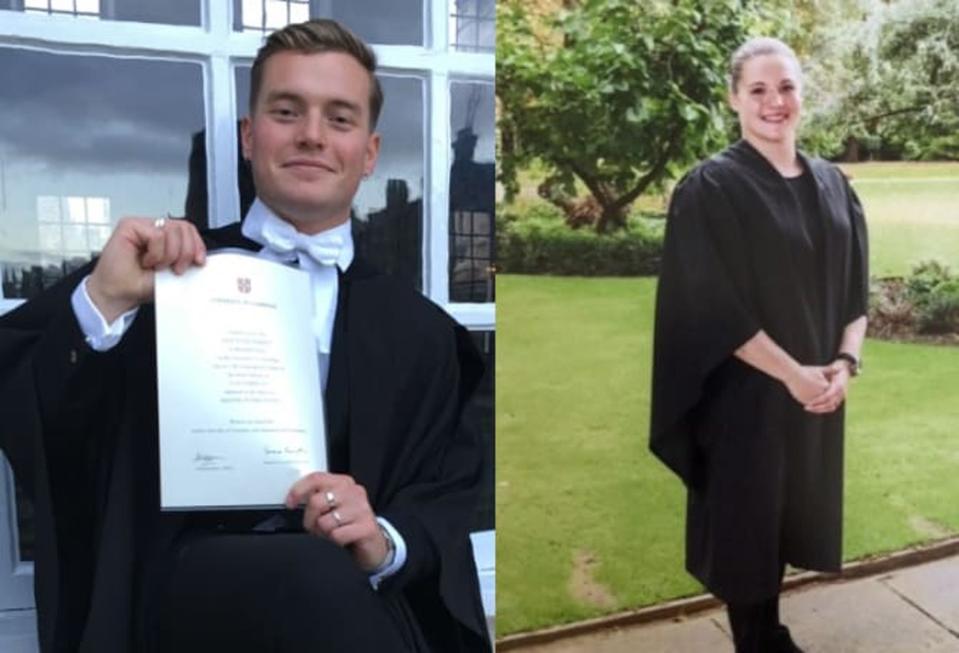Fishmongers’ Hall terror attacker said he tried to ‘gain points’ with Abu Hamza in prison, inquest hears

A terrorist claimed he met notorious hate preacher Abu Hamza in prison and tried to “gain points” with him, an inquest has heard.
Usman Khan held at the high-security HMP Belmarsh in London at the same time as the Egyptian cleric, who was later extradited to the US and jailed for life for terror offences.
Khan was moved around several prisons during his own sentence of preparing acts of terrorism, and accused of involvement in violence, disruption and radicalisation.
He was freed in December 2018 and 11 months later he launched a terror attack where he murdered two people at Fishmongers’ Hall in London.
A theological mentor who was assigned to Khan after his release told the inquests into his victim’s deaths that he claimed to have rejected extremism.
The man, who can be named only as T.M after being granted legal anonymity, said that during a session in April 2019 Khan told of an incident where he met Abu Hamza in jail.
“He said he had been seeking to gain points in Abu Hamza’s book when he first met him and trying to prove his credentials, and using dirty ‘kuffar’ language about non-Muslims,” T.M told a hearing on Thursday.
“At that time he was disappointed in Abu Hamza and thought he had mellowed out and lost his edge after incarceration.”
A report written by T.M following the meeting quoted Khan saying: “Abu Hamza rebuked me for “dirty kuffar” language. I was young, angry, brash, he had changed - I lost some respect [for him] then but now see he had reviewed and realised and had regrets.”
The inquests have previously heard that Khan associated with fellow terrorists inside prison, including the murderer of Fusilier Lee Rigby, as well as notorious inmates including Charles Bronson.
T.M said he came away from the session and another meeting in August 2019 feeling that there “wasn't a great deal of work to be done” on Khan’s religious beliefs.
“He was saying all of the right things and doing it quite persuasively,” he added, describing the terrorist as “positive, upbeat and pleased to be engaging” during their interactions.
The reports show that Khan told T.M he had changed, and started pushing back against extremist influences inside prison.

Khan also claimed that he believed in “spiritualism” and called formal religion a “controlling, restrictive cult”, although his beliefs were still Islamic.
The mentor said he was not told of intelligence that Khan had himself been radicalising inmates shortly before his release.
Jonathan Hough QC, counsel to the inquests, asked T.M whether his views on Khan would have changed if he had been told about the suspicions.
He replied: “Yes. (I would have thought) that he was being patently dishonest and he was trying to game the system.”
The hearing was shown a tasking agreement between T.M and the Home Office, which said that despite previous involvement in radicalisation and violence in jail, Khan’s behaviour “improved significantly” in the six months before release.
It said Khan had “received positive reports about his engagement with education, the imam and a project run by Cambridge University”.
The project was a programme called Learning Together, which saw prisoners at the high-security HMP Whitemoor and other jails join courses alongside Cambridge University students.
Khan had joined a creative writing course and then did further programmes on education, criminal justice and probability, becoming a “peer mentor” in 2018.
Following his release, he was invited to an alumni event at Fishmongers’ Hall in London on 29 November 2019.
Shortly after 2pm, Khan started on a rampage armed with two knives and a fake suicide vest.
He murdered Learning Together course co-ordinator Jack Merritt, 25, and former volunteer Saskia Jones, 23, and stabbed three other people.
Attendees fought Khan and chased him on to London Bridge, where he was shot dead by armed police.
The inquests are examining the circumstances of his victims’ deaths and whether they could have been prevented.
Read More
Fishmongers’ Hall terrorist claimed Charles Bronson told him ‘just do it’ before attack
HMP Belmarsh: The high-security prison where terrorists exchange ideas and ‘jihad banter’

 Yahoo Movies
Yahoo Movies 
